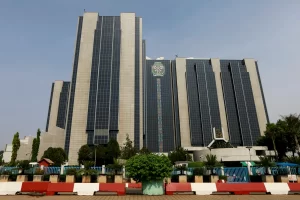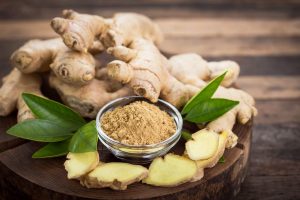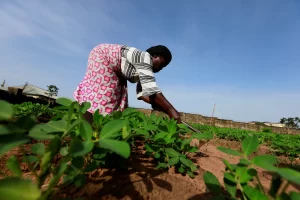A quiet revolution is underway in Cameroon as farmers enticed by soaring cocoa prices are abandoning traditional crops to embrace the lucrative world of cocoa farming.
The recent surge in cocoa prices has prompted a wave of optimism among farmers, signaling a shift in the agricultural landscape of the West African nation.
Banyuy Elsie Kinyuy, a 57-year-old high school tutor from Yaoundé, the capital city of Cameroon, epitomizes this transformative trend.
In November, Kinyuy made a bold decision to invest in a 3-hectare parcel of land in a rural area, approximately 200 kilometers northwest of her home. With determination in her heart and cocoa trees in her hands, she planted the seeds of her future retirement income.
“I remember earning 1.5 million CFA francs ($2,458) from these crops at one moment, whereas cocoa could barely give me 600,000 francs to 700,000 francs,” says Jean-Marie Mbida Obam, a 61-year-old farmer who has decided to return to cocoa farming after a hiatus of three years.
“I am back and prepared to completely revive all of my plantation. The cocoa price now is very good,” he adds, highlighting the allure of cocoa amidst the price surge.
The catalyst for this seismic shift lies in the global cocoa market dynamics. Double-digit production declines in Ivory Coast and Ghana, the top two cocoa-producing nations, have led to a scramble for beans.
Bad weather and a shortage of fertilizer have plagued cocoa farmers in these countries, causing a significant drop in production.
Consequently, cocoa prices on the New York futures exchange have skyrocketed from below $3,000 to $10,000 a ton in just a year.
Cameroon, with its favorable climate and fertile soil, has emerged as an attractive destination for cocoa cultivation.
Forecasts by the International Cocoa Organization predict a 3% increase in Cameroon’s cocoa crop, reaching 300,000 tons, amidst a global shortage.
Encouraged by such projections, farmers like Kinyuy and Obam are seizing the opportunity to tap into the potential of cocoa farming.
However, the journey towards a cocoa-rich future is not without its challenges. Traditional practices and land tenure systems often pose obstacles to aspiring cocoa farmers.
The need for modernization and access to resources such as land, finance, and technology remains paramount for sustainable cocoa cultivation.
Moreover, the European Union’s stringent regulations aimed at combating deforestation pose a looming threat to expansion plans in the cocoa industry.
Chocolate makers are now required to ensure that every bean imported into the EU is sourced sustainably, adding another layer of complexity to the cocoa supply chain.




